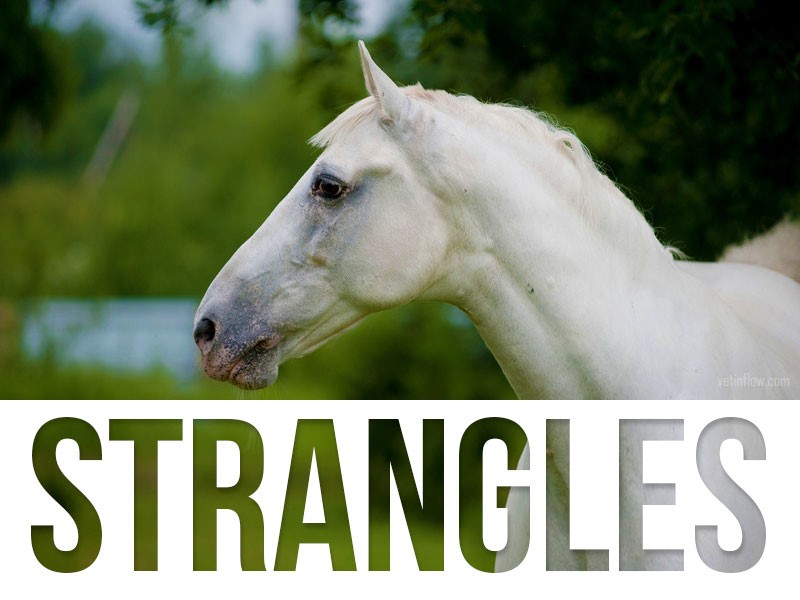
Strangles

Strangles is a respiratory infection that can affect horses, ponies and donkeys of all ages. This infectious disease is caused by a bacteria called Streptococcus equi and it's highly contagious. It spreads between horses by direct contact, contaminated humans, food, water, tack and other items normally present in a horse's environment.
Clinical signs of this disease vary greatly. Some horses are just symptomless carriers, some may only show a few minor signs and others may become very ill. Affected horses will typically present sudden onset of fever (up to 41°C), depression, lack of appetite, difficulties swallowing due to enlarged lymph nodes, cough and there is usually a thin watery nasal discharge, which soon becomes thick and yellow.
The bacteria involved in this condition affects the lymph nodes causing the formation of abscesses. These tend to rupture either to the outside or into the back of the horse's throat, discharging thick yellow pus. Occasionally the bacteria will spread systemically throughout the horse' s body and abscesses form in the lymph nodes of the lungs, intestines and even in the brain. The rupture of these abscesses can be fatal.
Some horses are more susceptible to this disease than others. Younger horses (1-5 years old), older or debilitated horses due to poor condition, parasitic infestation or stress are more at risk. If they frequently come in contact with horses from other groups, they are also more likely to contract strangles.
The key to prevent this disease is good management! New horses should be quarantined and monitored for 2 to 3 weeks. Please remember that isolated horses must have their own grooming kit, tack and no equipment used for the affected horse should be allowed near other horses.
If you think your horse has strangles, it should be immediately isolated and you should call your vet. If the disease is detected and treated at an early stage the recovery rate is usually quite good.
Would you like to know more about horses? Check our Equine Courses:
Equine courses
Read the previous article: The changes to the Dangerous Dogs Act affects all owners!

